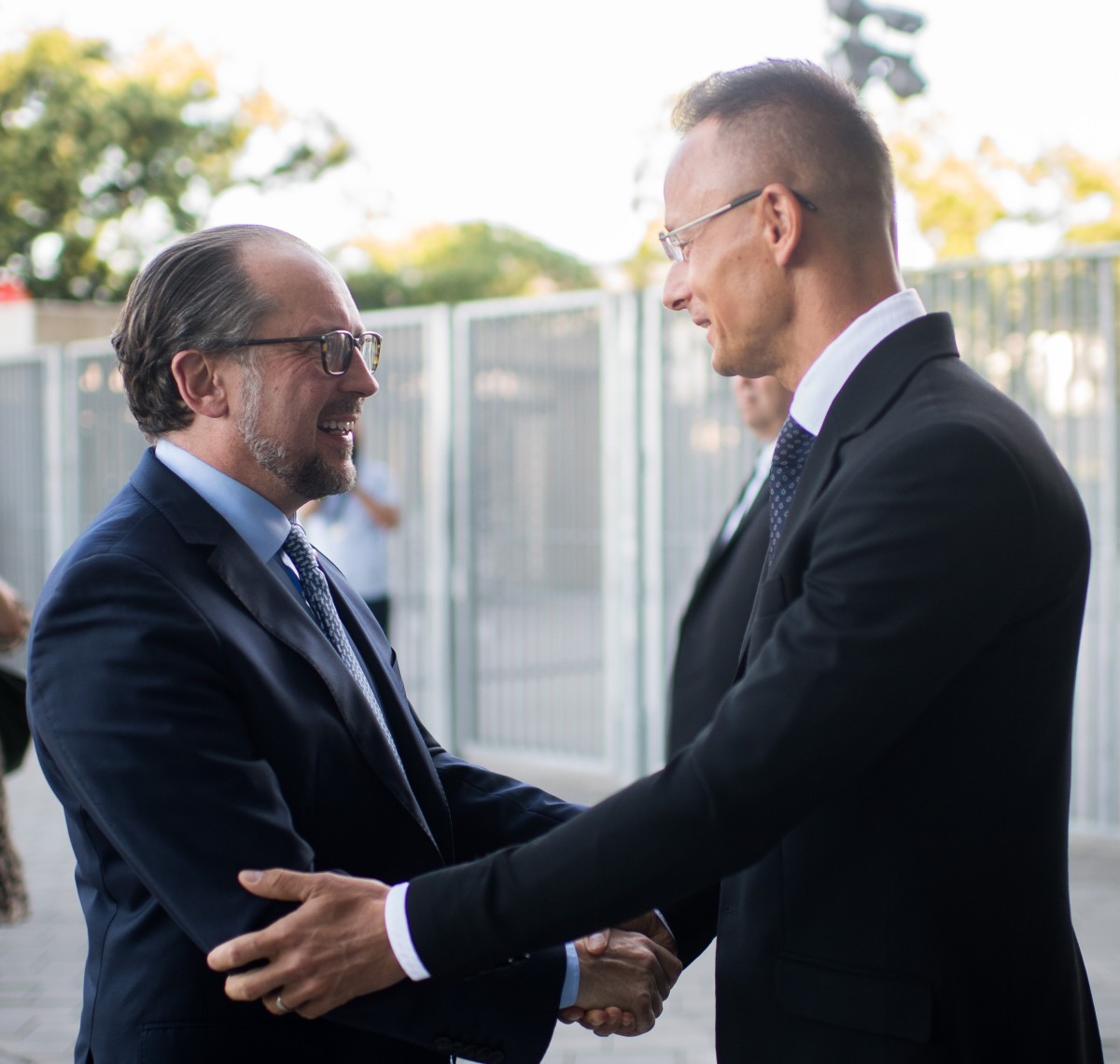Sponsored Content
Austria's and Hungary's Foreign Ministers in Talks: "Western Balkan Enlargement is the Best Geopolitical Tool We Have"
During a recent visit to Vienna, the Hungarian Foreign Minister Péter Szijjártó met with the Austrian Foreign Minister Alexander Schallenberg. Apart from bilateral issues, the meeting focused on the Russian aggression in Ukraine and its effects on Central European neighbors and Western Balkans. The two foreign ministers also discussed European energy security.
 Austria's Foreign Minister Schallenberg and Hungary's Foreign Minister Péter Szijjártó. / Picture: © BMEIA Bundesministerium für Europa, Integration und Äußeres / Gruber / Flickr Attribution 2.0 Generic (CC BY 2.0)
Austria's Foreign Minister Schallenberg and Hungary's Foreign Minister Péter Szijjártó. / Picture: © BMEIA Bundesministerium für Europa, Integration und Äußeres / Gruber / Flickr Attribution 2.0 Generic (CC BY 2.0)
In politically uncertain times, it is important to have close contact with one's neighbouring countries. This is why the Hungarian Foreign Minister Péter Szijjártó visited the Austrian Foreign Minister Alexander Schallenberg in Vienna.
In addition to bilateral issues, the main topics of the meeting were the Russian war of aggression in Ukraine and its impact on the Central…
or Log In
Fast News Search





